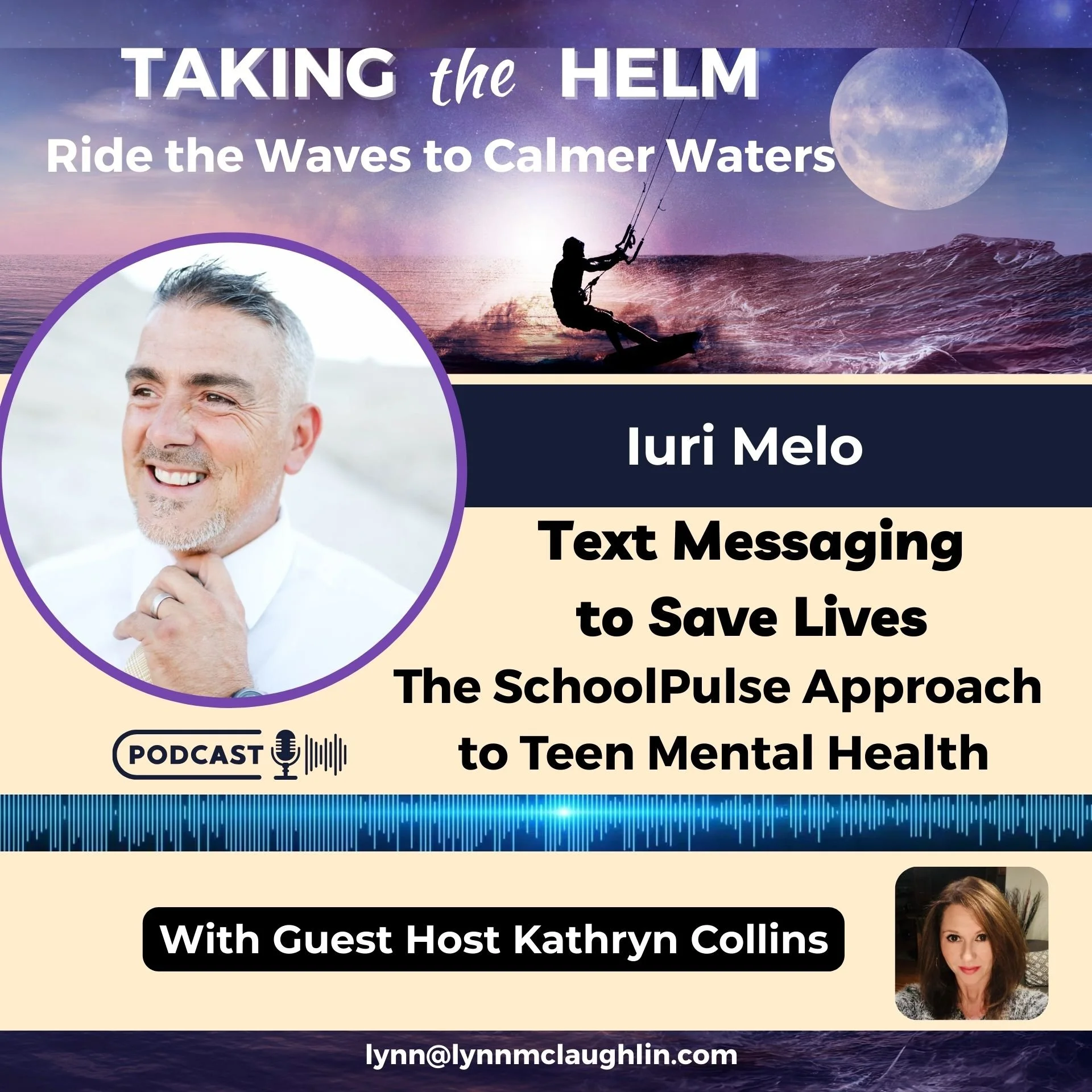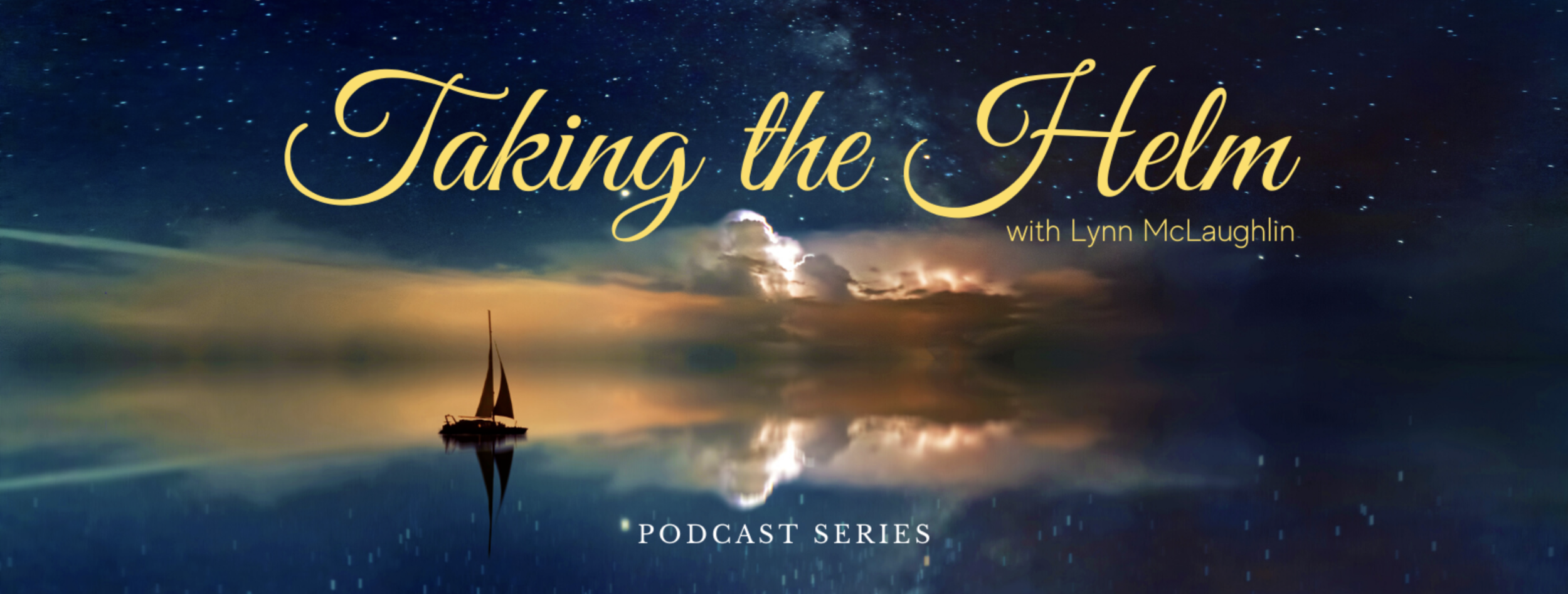
Helping a Child With Autism Thrive: What the Science Shows
Dr. Theresa Lyons, Ph.D. in chemistry from Yale University, shares her unique perspective as both a scientist and a mother of a daughter with autism. Drawing on cutting-edge research and her personal journey, Dr. Lyons explores the underlying health and environmental factors that can influence a child’s development beyond the autism diagnosis. She launched "Navigating Awetism" to help parents.
💥 Understanding the role of genetics and risk factors in autism and how research informs what we can address.
💥 Exploring environmental factors that can influence a child’s sleep, health and behaviour.
💥 Looking at gut health, food allergies, and sensitivities as possible contributors to well-being. (Gluten, Candida and other gut infections.)
💥 How functional medicine approaches, including Vitamin D, B12, and other assessments, can uncover hidden opportunities for improvement.
💥 The role of detoxification and overall health management in supporting daily functioning and quality of life.
💥 Emphasizing a whole-child approach that empowers parents to take proactive steps while respecting each child’s unique needs.
💥 Supporting the entire family.
Coming February 11th

Dr. Theresa Lyons, Ph.D. in chemistry from Yale University, shares her unique perspective as both a scientist and a mother of a daughter with autism. Drawing on cutting-edge research and her personal journey, Dr. Lyons explores the underlying health and environmental factors that can influence a child’s development beyond the autism diagnosis. She launched "Navigating Awetism" to help parents.
💥 Understanding the role of genetics and risk factors in autism and how research informs what we can address.
💥 Exploring environmental factors that can influence a child’s sleep, health and behaviour.
💥 Looking at gut health, food allergies, and sensitivities as possible contributors to well-being. (Gluten, Candida and other gut infections.)
💥 How functional medicine approaches, including Vitamin D, B12, and other assessments, can uncover hidden opportunities for improvement.
💥 The role of detoxification and overall health management in supporting daily functioning and quality of life.
💥 Emphasizing a whole-child approach that empowers parents to take proactive steps while respecting each child’s unique needs.
💥 Supporting the entire family.

Subscribe from your the platform of your choice

Star Students | Where Curiosity Drives Learning
Kimberly Gawne is an educator and founder of Star Students, a program that creates personalized learning plans driven by each child’s interests. Starting as a tutor during COVID-19 school closures, she now supports families with homeschooling, curriculum guidance, and real-world learning experiences, helping students develop critical thinking and a love of learning.
Guest host Kathryn Collins dives into the key topics with Kim:💥 Why did Kim leave the public/private school systems and begin tutoring?
💥 How does Star Students work to support parents who home school?
💥 What are the age ranges, daily instructional time and choices for parents?
💥 What are the challenges of homeschooling and some solutions?
💥 Why is critical thinking so important?
💥 How can parents prepare themselves to begin?
💥 World Schooling - How families travelling the world are educating their children.

Kimberly Gawne is an educator and founder of Star Students, a program that creates personalized learning plans driven by each child’s interests. Starting as a tutor during COVID-19 school closures, she now supports families with homeschooling, curriculum guidance, and real-world learning experiences, helping students develop critical thinking and a love of learning.
Guest host Kathryn Collins dives into the key topics with Kim:
💥 Why did Kim leave the public/private school systems and begin tutoring?
💥 How does Star Students work to support parents who home school?
💥 What are the age ranges, daily instructional time and choices for parents?
💥 What are the challenges of homeschooling and some solutions?
💥 Why is critical thinking so important?
💥 How can parents prepare themselves to begin?
💥 World Schooling - How families travelling the world are educating their children.
Subscribe from your the platform of your choice

Holiday Magic Without the Meltdown
Laurel Crossley joins us again with guest host Kathryn Collins to explore how small, thoughtful decisions can make a huge difference for families during the holidays. From keeping little ones comfortable and predictable to helping older kids engage in meaningful ways, we cover boundaries, calm moments, and simple strategies to create lasting memories without the overwhelm.
Key Points:
💥 Keeping young children settled and comfortable, even when routines are challenged.
💥 Setting clear expectations with extended family to reduce tension and stress.
💥 Creating calm spaces and rhythms that support babies, toddlers, and new parents.
💥 Reimagining gift-giving and holiday activities to boost connection, not clutter.
💥 Involving older children in planning, budgeting, and traditions that teach life skills.
💥 Recognizing when it’s time to pause or step back to protect your child’s well-being.
Coming November 27th

𝐇𝐨𝐰 𝐝𝐨 𝐢𝐧𝐭𝐞𝐧𝐭𝐢𝐨𝐧𝐚𝐥 𝐜𝐡𝐨𝐢𝐜𝐞𝐬 𝐡𝐞𝐥𝐩 𝐟𝐚𝐦𝐢𝐥𝐢𝐞𝐬 𝐬𝐭𝐚𝐲 𝐠𝐫𝐨𝐮𝐧𝐝𝐞𝐝 𝐰𝐡𝐞𝐧 𝐭𝐡𝐞 𝐡𝐨𝐥𝐢𝐝𝐚𝐲 𝐜𝐡𝐚𝐨𝐬 𝐫𝐚𝐦𝐩𝐬 𝐮𝐩?
Laurel Crossley joins us again with guest host Kathryn Collins to explore how small, thoughtful decisions can make a huge difference for families during the holidays. From keeping little ones comfortable and predictable to helping older kids engage in meaningful ways, we cover boundaries, calm moments, and simple strategies to create lasting memories without the overwhelm.
Key Points:
💥 Keeping young children settled and comfortable, even when routines are challenged.
💥 Setting clear expectations with extended family to reduce tension and stress.
💥 Creating calm spaces and rhythms that support babies, toddlers, and new parents.
💥 Reimagining gift-giving and holiday activities to boost connection, not clutter.
💥 Involving older children in planning, budgeting, and traditions that teach life skills.
💥 Recognizing when it’s time to pause or step back to protect your child’s well-being.
Subscribe from your the platform of your choice

Before Birth and Beyond: The Lasting Power of Calm Beginnings
𝐃𝐢𝐝 𝐲𝐨𝐮 𝐤𝐧𝐨𝐰 𝐜𝐚𝐥𝐦 𝐛𝐞𝐟𝐨𝐫𝐞 𝐛𝐢𝐫𝐭𝐡 𝐬𝐡𝐚𝐩𝐞𝐬 𝐲𝐨𝐮𝐫 𝐭𝐨𝐝𝐝𝐥𝐞𝐫’𝐬 𝐞𝐦𝐨𝐭𝐢𝐨𝐧𝐬? 𝐇𝐨𝐰 𝐜𝐚𝐧 𝐞𝐚𝐫𝐥𝐲 𝐜𝐚𝐥𝐦 𝐡𝐞𝐥𝐩 𝐲𝐨𝐮𝐫 𝐭𝐨𝐝𝐝𝐥𝐞𝐫 𝐨𝐫 𝐩𝐫𝐞𝐬𝐜𝐡𝐨𝐨𝐥𝐞𝐫 𝐦𝐚𝐧𝐚𝐠𝐞 𝐛𝐢𝐠 𝐟𝐞𝐞𝐥𝐢𝐧𝐠𝐬?
Educator and wellness expert Laurel Crossley shares insights from 30 years of supporting families, and the science behind calm beginnings that lead to confident kids.Laurel Crosby shares how a mother’s emotional state, even before birth, can shape a child’s development for years to come.
💥 She explains the importance of supporting maternal mental, emotional, and spiritual health
💥 How early calm and connection lay the foundation for resilient, empathetic children.
💥 From mindfulness in everyday life to modelling emotional regulation during tantrums
💥 Practical strategies for parents and educators
💥 The power of outdoor play, sensory tools, and storytelling to help children manage their emotions.
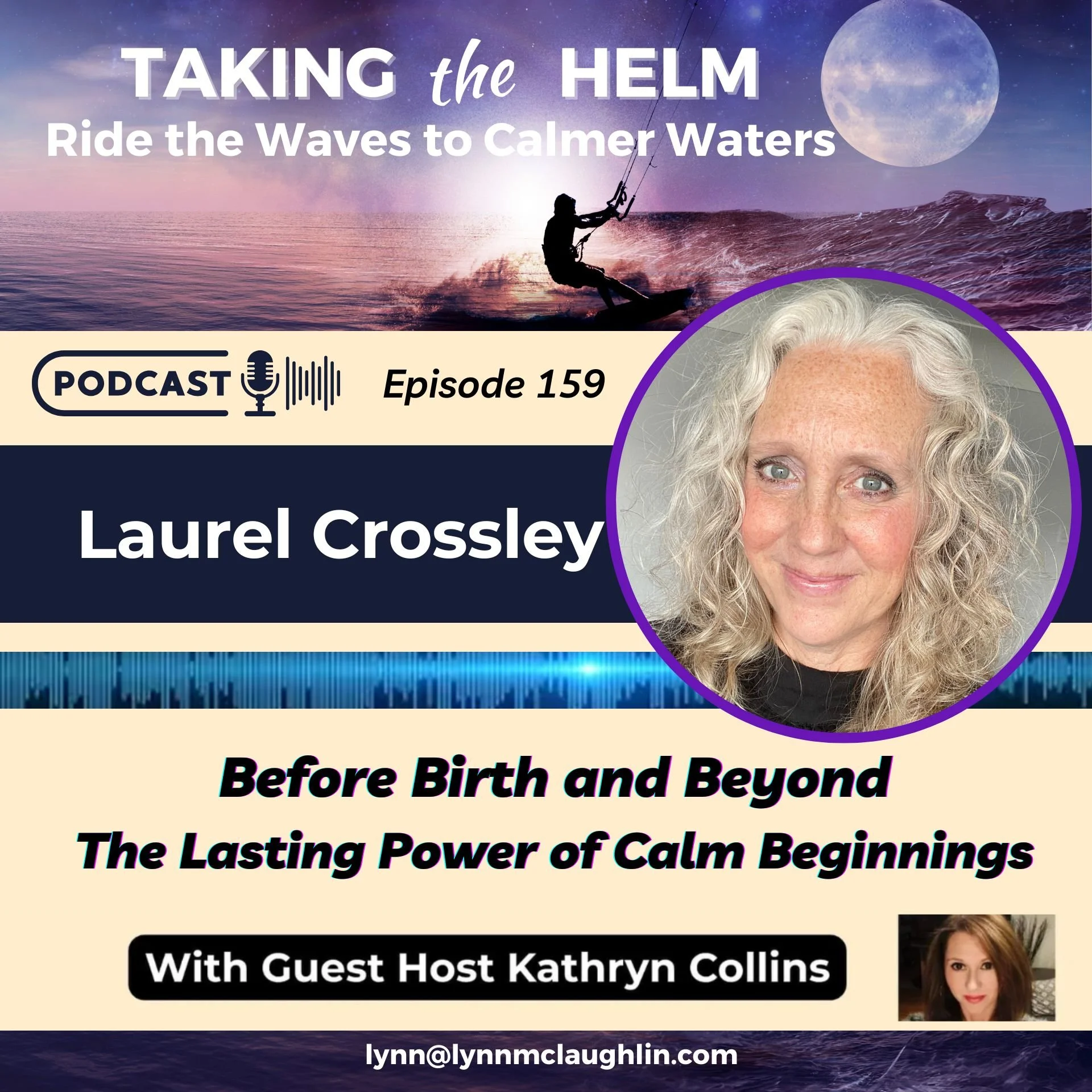
𝐃𝐢𝐝 𝐲𝐨𝐮 𝐤𝐧𝐨𝐰 𝐜𝐚𝐥𝐦 𝐛𝐞𝐟𝐨𝐫𝐞 𝐛𝐢𝐫𝐭𝐡 𝐜𝐚𝐧 𝐬𝐡𝐚𝐩𝐞 𝐲𝐨𝐮𝐫 𝐭𝐨𝐝𝐝𝐥𝐞𝐫’𝐬 𝐞𝐦𝐨𝐭𝐢𝐨𝐧𝐬? 𝐇𝐨𝐰 𝐜𝐚𝐧 𝐞𝐚𝐫𝐥𝐲 𝐜𝐚𝐥𝐦 𝐡𝐞𝐥𝐩 𝐲𝐨𝐮𝐫 𝐭𝐨𝐝𝐝𝐥𝐞𝐫 𝐨𝐫 𝐩𝐫𝐞𝐬𝐜𝐡𝐨𝐨𝐥𝐞𝐫 𝐦𝐚𝐧𝐚𝐠𝐞 𝐛𝐢𝐠 𝐟𝐞𝐞𝐥𝐢𝐧𝐠𝐬?
For over 40 years, Laurel Crossley has dedicated her career in support of children and their families. From hosting parent and child workshops to coaching parents and their children, Mindfulness & Meditation has been at the centre of her work offering coping strategies for those dealing with worry and anxiety.
During the pandemic, she was approached by her local television station to create a program to support families and children and Help! We’ve Got Anxiety!™ began. Today, she offers Meditating Munchkins™ for preschools, daycares and schools for children ages 18 months - 5 years as a mental health promotion strategy teaching the fundamentals of meditation.
Laurel shares how a mother’s emotional state, even before birth, can shape a child’s development for years to come.
💥 She explains the importance of supporting maternal mental, emotional, and spiritual health
💥 How early calm and connection lay the foundation for resilient, empathetic children.
💥 From mindfulness in everyday life to modelling emotional regulation during tantrums
💥 Practical strategies for parents and educators
💥 The power of outdoor play, sensory tools, and storytelling to help children manage their emotions.
Subscribe from your the platform of your choice

Rewiring the Brain: Neurofeedback for Kids and Teens
How can non-invasive neurofeedback can help children and adolescents struggling with ADHD, learning differences, anxiety, depression, emotional dysregulation, and more?
Licensed Clinical Professional Counselor and neurofeedback specialist Lisa Cramer explains how brainwave patterns influence focus, behavior, and emotions—and how neurotherapy can gently guide the brain toward healthier, more functional states.
Key topics:
💥 What happens during a neurofeedback assessment
💥 When it should be considered, and why it’s becoming an increasingly trusted option for families
💥 Real-life success stories
💥 The science of brainwaves and neuroplasticity. What does the research say?
💥 How to find a qualified practitioner.
💥 Safety and contraindications parents need to consider
💥 Emotional regulation can be brain based
💥 Neurofeedback in training, not treatment
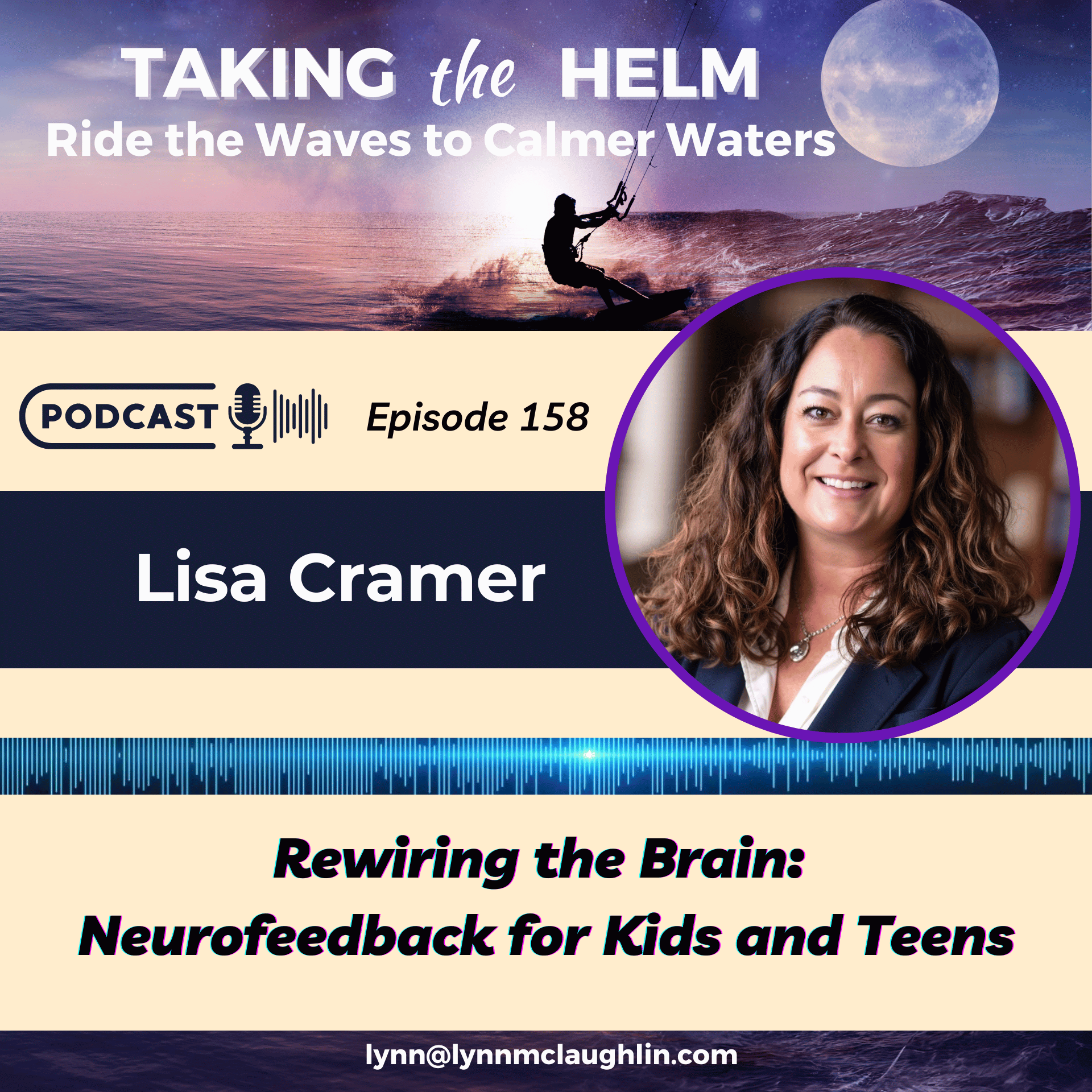
How can non-invasive neurofeedback can help children and adolescents struggling with ADHD, learning differences, anxiety, depression, emotional dysregulation, and more?
Licensed Clinical Professional Counselor and neurofeedback specialist Lisa Cramer explains how brainwave patterns influence focus, behavior, and emotions—and how neurotherapy can gently guide the brain toward healthier, more functional states.
Key topics:
💥 What happens during a neurofeedback assessment
💥 When it should be considered, and why it’s becoming an increasingly trusted option for families
💥 Real-life success stories
💥 The science of brainwaves and neuroplasticity. What does the research say?
💥 How to find a qualified practitioner.
💥 Safety and contraindications parents need to consider
💥 Emotional regulation can be brain based
💥 Neurofeedback has many options and can be training our brains, as well as treatment
Subscribe from your the platform of your choice

Beyond Flashcards | Turning Everyday Moments Into Opportunities for Language Growth
Did you know that the questions we ask children should change as they develop? Asking the right questions at the right time helps children’s communication flourish.
Paula LaSala-Filangeri is a Speech-Language Pathologist who has been supporting children and families for over 25 years.
How can parents move beyond flashcards and start turning everyday routines, like walking in nature or baking a cake, into powerful opportunities for language growth?
Here are a few of the key insights we’ll explore:
💥 Parents as the Primary Language Facilitators
💥 Following Your Child’s Lead & Building on Motivation
💥 Creating Communicative Temptations
💥 Modeling, Not Testing
💥 Building Blocks of Sentences: Nouns + Verbs
💥 The Power of Questions (and the Right Order)
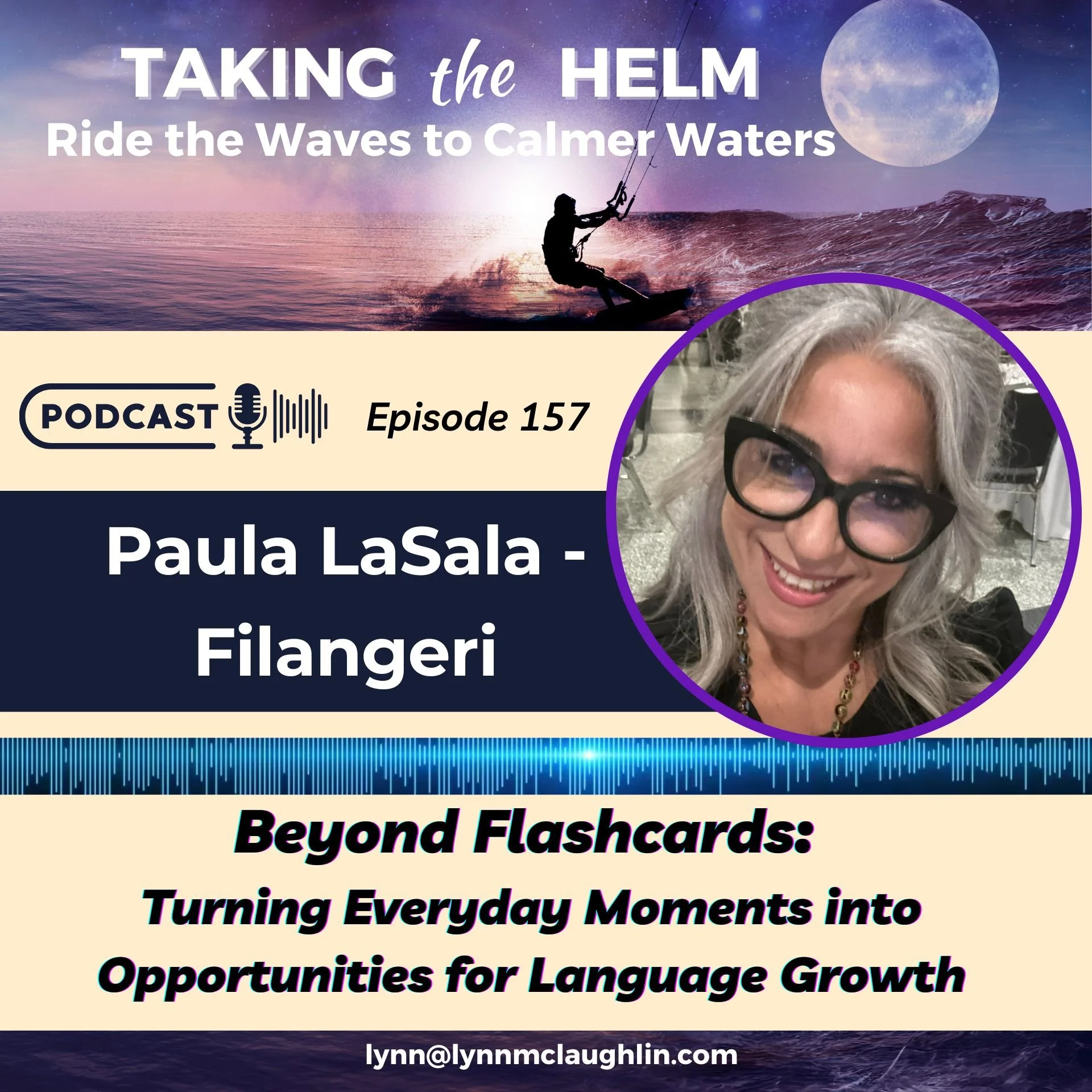
Did you know that the questions we ask children should change as they develop? Asking the right questions at the right time helps children’s communication flourish.
Paula LaSala-Filangeri is a Speech-Language Pathologist who has been supporting children and families for over 25 years.
How can parents move beyond flashcards and start turning everyday routines, like walking in nature or baking a cake, into powerful opportunities for language growth?
Here are a few of the key insights we’ll explore:
💥 Parents as the Primary Language Facilitators
💥 Following Your Child’s Lead & Building on Motivation
💥 Creating Communicative Temptations
💥 Modeling, Not Testing
💥 Building Blocks of Sentences: Nouns + Verbs
💥 The Power of Questions (and the Right Order)
💥 Resources for follow up
Paula holds an Honours degree in Linguistics and a Master of Clinical Science in Speech-Language Pathology from Western University.
With expertise in autism, developmental delay, communication, and literacy, Paula has worked in homes, schools, and community settings, and in 2011 opened a private clinic in her hometown of Leamington. She continues to balance private practice with her role in the public school system.
A passionate educator, Paula has been a guest lecturer for St. Clair College’s Educational Assistant program and an active community volunteer, co-founding initiatives with Autism Ontario’s Windsor-Essex chapter and contributing to her Italian cultural community. A lifelong learner, she enjoys reading, writing, and connecting with others—and remains dedicated to empowering children and families.
Subscribe from your the platform of your choice

Parenting and Teaching Through Soul Connection
What if we stopped trying to “fix” children and started listening to their souls instead?
Michelle Harris has almost 30 years in the field of healing, well-being, and empowerment. She is the founder of the innovative Draco Dragon System of Healing & Master Healer/Teacher.
She helps us explore what it means to truly see, hear, and honour today’s sensitive, intuitive, and highly evolved children. From conscious parenting to energy healing in schools, Michelle shares a holistic approach that helps children feel safe, empowered, and emotionally aware.
💥 Why traditional systems often miss the mark
💥 The impact of soul frequency and energy on a child’s well-being
💥 Empowerment strategies that meet kids where they are
💥 Conscious parenting through boundaries, empathy, and emotional modelling
💥 Consequences instead of punishment
💥 Breathing, visualization, and mindfulness tools kids actually enjoy
💥 How schools can start small and still create big change
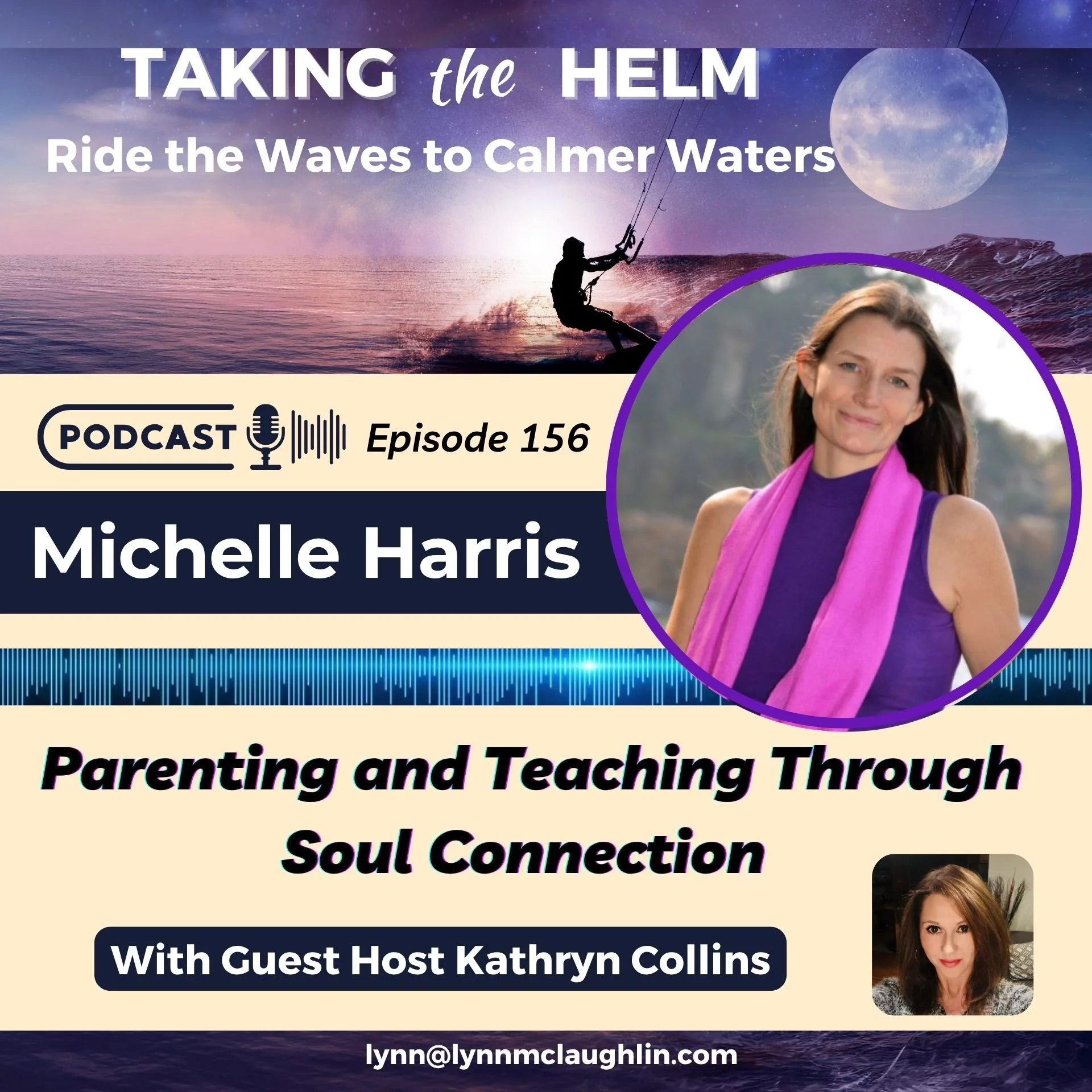
What if we stopped trying to “fix” children and started listening to their souls instead?
Michelle Harris has almost 30 years in the field of healing, well-being, and empowerment. She is the founder of the innovative Draco Dragon System of Healing & Master Healer/Teacher.
She helps us explore what it means to truly see, hear, and honour today’s sensitive, intuitive, and highly evolved children. From conscious parenting to energy healing in schools, Michelle shares a holistic approach that helps children feel safe, empowered, and emotionally aware.
💥 Why traditional systems often miss the mark
💥 The impact of soul frequency and energy on a child’s well-being
💥 Empowerment strategies that meet kids where they are
💥 Conscious parenting through boundaries, empathy, and emotional modelling
💥 Consequences instead of punishment
💥 Breathing, visualization, and mindfulness tools kids actually enjoy
💥 How schools can start small and still create big change
Subscribe from your the platform of your choice

Saving Lives With Text Messaging | The SchoolPulse Approach to Teen Mental Health
After a series of tragic teen suicides in his community, Licensed Clinical Social Worker Iuri Melo knew the old ways weren’t working. So, he co-founded SchoolPulse, a text-based mental health support system now used in over 300 schools across North America.
SchoolPulse, a powerful, text-based support system now used in over 300 schools across 25+ states.No apps. No extra workload for staff. Just proactive, ongoing support, delivered right to where teens already are.
Iuri shares how SchoolPulse is:
💥 Delivering real-time support to students, parents, and educators
💥 Grounded in research and designed to reach teens where they are
💥 Focused on growth mindset, optimism, and belonging
💥 Helping shift school culture toward proactive emotional support
💥 Backed by Iuri’s own insights as a father of five, therapist, author of Know Thy Selfie, and developer of Adventure-Based Therapy.
💥 Involved parents right from the beginning with weekly videos and positivity.
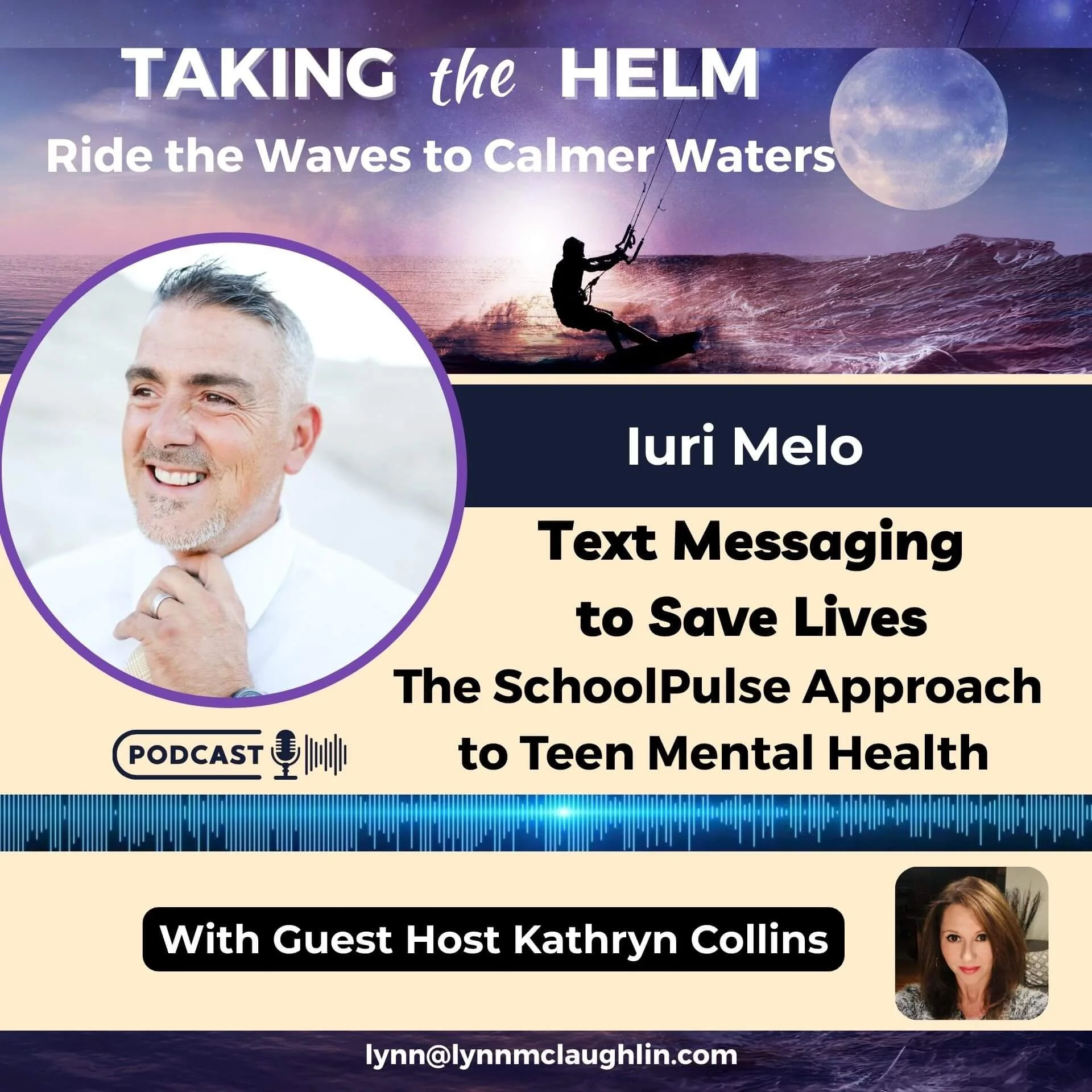
Learn More From Iuri Melo
What if a simple text message could change, or even save a teen’s life?
After a series of tragic teen suicides in his community, Licensed Clinical Social Worker Iuri Melo knew the old ways weren’t working. So, he co-founded SchoolPulse, a text-based mental health support system now used in over 300 schools across North America.
SchoolPulse, a powerful, text-based support system now used in over 300 schools across 25+ states.No apps. No extra workload for staff. Just proactive, ongoing support, delivered right to where teens already are.
Iuri shares how SchoolPulse is:
💥 Delivering real-time support to students, parents, and educators
💥 Grounded in research and designed to reach teens where they are
💥 Focused on growth mindset, optimism, and belonging
💥 Helping shift school culture toward proactive emotional support
💥 Backed by Iuri’s own insights as a father of five, therapist, author of Know Thy Selfie, and developer of Adventure-Based Therapy.
💥 Involved parents right from the beginning with weekly videos and positivity.
Subscribe from your the platform of your choice

Video Gaming Addiction | A Mother's SOS and the Mission that Followed
When Elaine Uskoski received a chilling email from her son, she knew something was deeply wrong. He had stopped attending university classes, missed deadlines, was sleeping all day, barely eating, and had been gaming for up to 16 hours a day. What began as a fearful drive to pick him up from campus became the beginning of a life-altering journey, not just for her son’s recovery, but for Elaine’s new purpose: helping families across the world understand and address video gaming addiction.
Now an internationally recognized coach, speaker, and author of Cyber Sober, Elaine joins us to share her story of heartbreak, healing, and hope, offering insight into a modern addiction that many still don’t recognize.
Highlights:
💥 The red flags of gaming addiction
💥 What recovery looked like at home
💥 Why "just take it away" doesn’t work
💥 Who’s most at risk (and why)
💥 What parents and educators can do
💥 Harm reduction strategies and prevention
💥 How Jake is thriving today, and helping others
💥 The modules now available for post-secondary schools and residences to raise student awareness
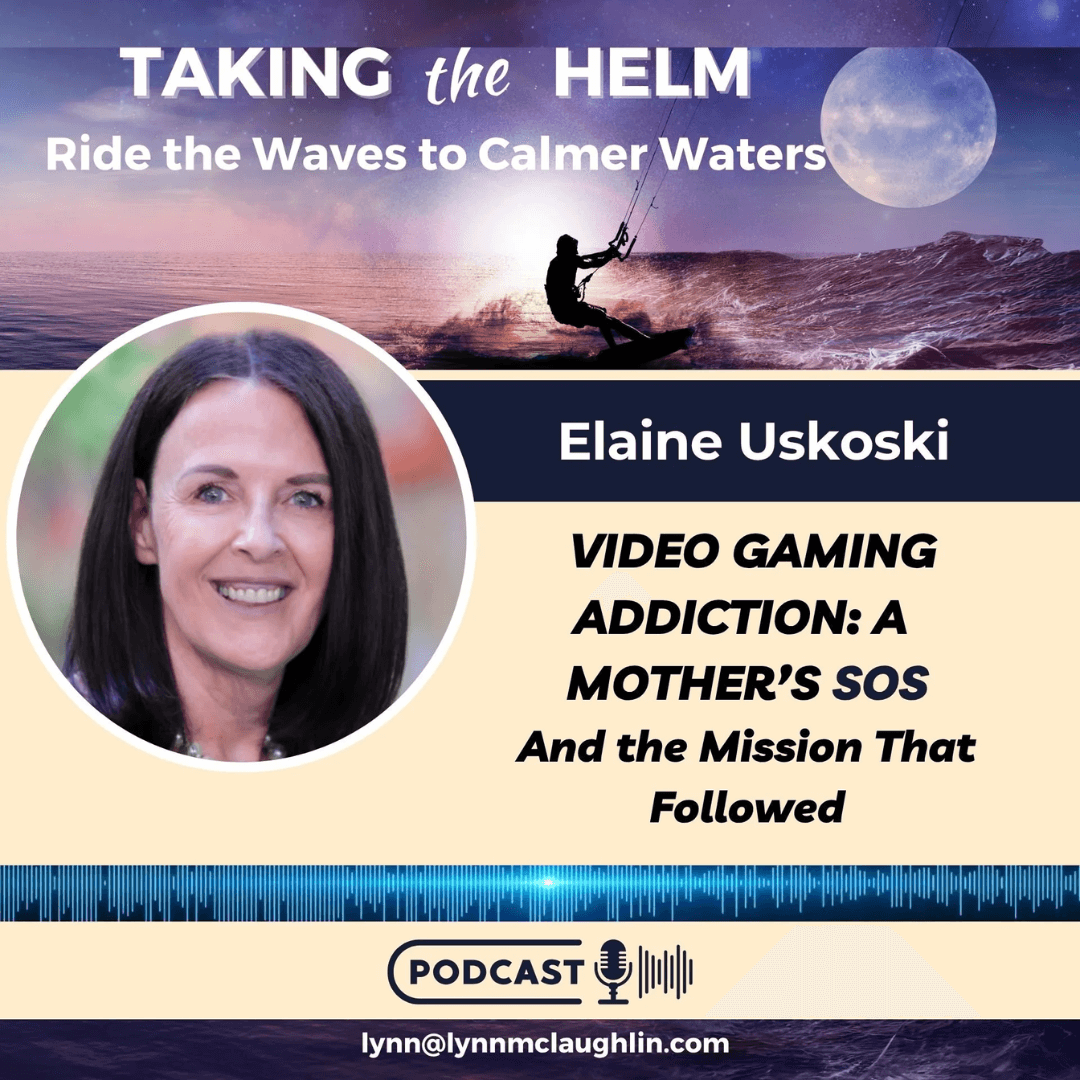
When Elaine Uskoski received a chilling email from her son, she knew something was deeply wrong. He had stopped attending university classes, missed deadlines, was sleeping all day, barely eating, and had been gaming for up to 16 hours a day. What began as a fearful drive to pick him up from campus became the beginning of a life-altering journey, not just for her son’s recovery, but for Elaine’s new purpose: helping families across the world understand and address video gaming addiction.
Now an internationally recognized coach, speaker, and author of Cyber Sober, Elaine joins us to share her story of heartbreak, healing, and hope, offering insight into a modern addiction that many still don’t recognize.
Highlights:
💥 The red flags of gaming addiction
💥 What recovery looked like at home
💥 Why "just take it away" doesn’t work
💥 Who’s most at risk (and why)
💥 What parents and educators can do
💥 Harm reduction strategies and prevention
💥 How Jake is thriving today, and helping others
💥 The modules now available for post-secondary schools and residences to raise student awareness
Subscribe from your the platform of your choice

Behaviour Breakdowns and the Tools to Turn Things Around in Homes and Classrooms
Whether you are navigating tantrums or teacher burnout, this week's guest on Taking the Helm, Dr. Teri Rouse offers real-world strategies that are practical, heartfelt, and deeply human. 𝐖𝐡𝐚𝐭 𝐡𝐚𝐩𝐩𝐞𝐧𝐬 𝐰𝐡𝐞𝐧 𝐚 𝐬𝐞𝐚𝐬𝐨𝐧𝐞𝐝 𝐞𝐝𝐮𝐜𝐚𝐭𝐨𝐫 𝐚𝐧𝐝 𝐬𝐩𝐞𝐜𝐢𝐚𝐥 𝐞𝐝𝐮𝐜𝐚𝐭𝐢𝐨𝐧 𝐞𝐱𝐩𝐞𝐫𝐭 𝐟𝐚𝐜𝐞𝐬 𝐛𝐞𝐡𝐚𝐯𝐢𝐨𝐮𝐫𝐬 𝐢𝐧 𝐡𝐞𝐫 𝐨𝐰𝐧 𝐡𝐨𝐦𝐞 𝐭𝐡𝐚𝐭 𝐬𝐡𝐞 𝐜𝐚𝐧’𝐭 𝐞𝐱𝐩𝐥𝐚𝐢𝐧, 𝐥𝐞𝐭 𝐚𝐥𝐨𝐧𝐞 𝐦𝐚𝐧𝐚𝐠𝐞?
Join Dr. Teri, Women Changing the World Award winner, as she shares her journey with her step-son and how it led her to a doctorate in behaviour management. She unpacks the emotional and professional challenges educators and parents face today, with solutions!
💥 Her unique BARC system for tracking behaviour.
💥 The importance of asking "What are you feeling now?", and how to co-create a plan that works for both child and adult. 💥 She opens up about her REAL Peaceful Parenting Framework, the power of communication in identifying root issues, and why early intervention is non-negotiable. 💥 From her Snuggle Bunny Time to her book 𝗨𝗻𝘁𝗮𝗺𝗲𝗱 𝗖𝗵𝗮𝗼𝘀, her tools and strategies are born from both academic expertise and lived experience. 💥 New autism research and practical ways to reconnect with your child—starting with one outdoor moment at a time.
Whether you’re a teacher, parent, or professional working with kids, this episode is a must-listen.
Coming June 11th
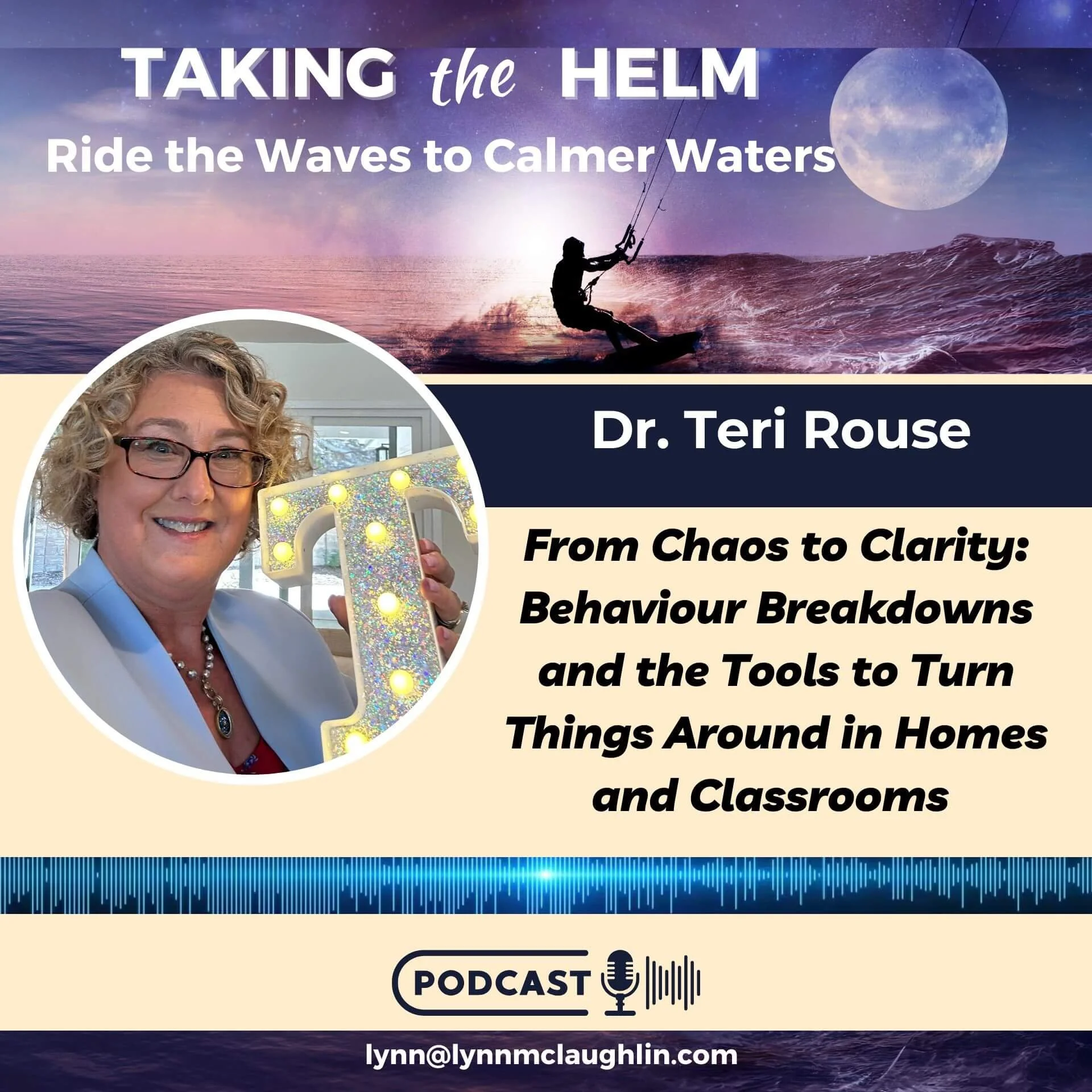
Whether you are navigating tantrums or teacher burnout, this week's guest on Taking the Helm, Dr. Teri Rouse offers real-world strategies that are practical, heartfelt, and deeply human. 𝐖𝐡𝐚𝐭 𝐡𝐚𝐩𝐩𝐞𝐧𝐬 𝐰𝐡𝐞𝐧 𝐚 𝐬𝐞𝐚𝐬𝐨𝐧𝐞𝐝 𝐞𝐝𝐮𝐜𝐚𝐭𝐨𝐫 𝐚𝐧𝐝 𝐬𝐩𝐞𝐜𝐢𝐚𝐥 𝐞𝐝𝐮𝐜𝐚𝐭𝐢𝐨𝐧 𝐞𝐱𝐩𝐞𝐫𝐭 𝐟𝐚𝐜𝐞𝐬 𝐛𝐞𝐡𝐚𝐯𝐢𝐨𝐮𝐫𝐬 𝐢𝐧 𝐡𝐞𝐫 𝐨𝐰𝐧 𝐡𝐨𝐦𝐞 𝐭𝐡𝐚𝐭 𝐬𝐡𝐞 𝐜𝐚𝐧’𝐭 𝐞𝐱𝐩𝐥𝐚𝐢𝐧, 𝐥𝐞𝐭 𝐚𝐥𝐨𝐧𝐞 𝐦𝐚𝐧𝐚𝐠𝐞?
Join Dr. Teri, Women Changing the World Award winner, as she shares her journey with her step-son and how it led her to a doctorate in behaviour management. She unpacks the emotional and professional challenges educators and parents face today, with solutions!
💥 Her unique BARC system for tracking behaviour.
💥 The importance of asking "What are you feeling now?", and how to co-create a plan that works for both child and adult.
💥 She opens up about her REAL Peaceful Parenting Framework, the power of communication in identifying root issues, and why early intervention is non-negotiable.
💥 From her Snuggle Bunny Time to her book 𝗨𝗻𝘁𝗮𝗺𝗲𝗱 𝗖𝗵𝗮𝗼𝘀, her tools and strategies are born from both academic expertise and lived experience.
💥 New autism research and practical ways to reconnect with your child—starting with one outdoor moment at a time.
Whether you’re a teacher, parent, or professional working with kids, this episode is a must-listen.
Subscribe from your the platform of your choice
Rooted in Love | a Family’s Unbreakable Bond and the Road to Independence With Autism
When Rita Miceli received her son Giaci’s autism diagnosis, her world shifted - but it didn’t break. In the second part of this heartfelt conversation on Taking the Helm, Rita shares how her family navigated the uncertainty, fear, generational and cultural beliefs by building an unshakable foundation of love, support, and understanding.
Rita also reflects on sibling connection, self-care, the steps they took to build their son's independence and how she found peace knowing her son will always be supported. It’s a conversation filled with honesty, hope, and the powerful reminder that love can truly light the way.
💥 How do parents cope when they hear the diagnosis?
💥 How do we take care of ourselves and find strength rather than working at it from a point of weakness?
💥 Giaci's siblings adore him. What made this possible and how has he has made them better people?
💥 Giaci did not go to traditional high school. What did he do as an alternative that introduced him to the work world?
💥How did one TikTok post go viral and how does Giaci's social media posts give families a light at the end of the tunnel?
💥 How did his family prepare Giaci for his sister's wedding and the dance he had with her?
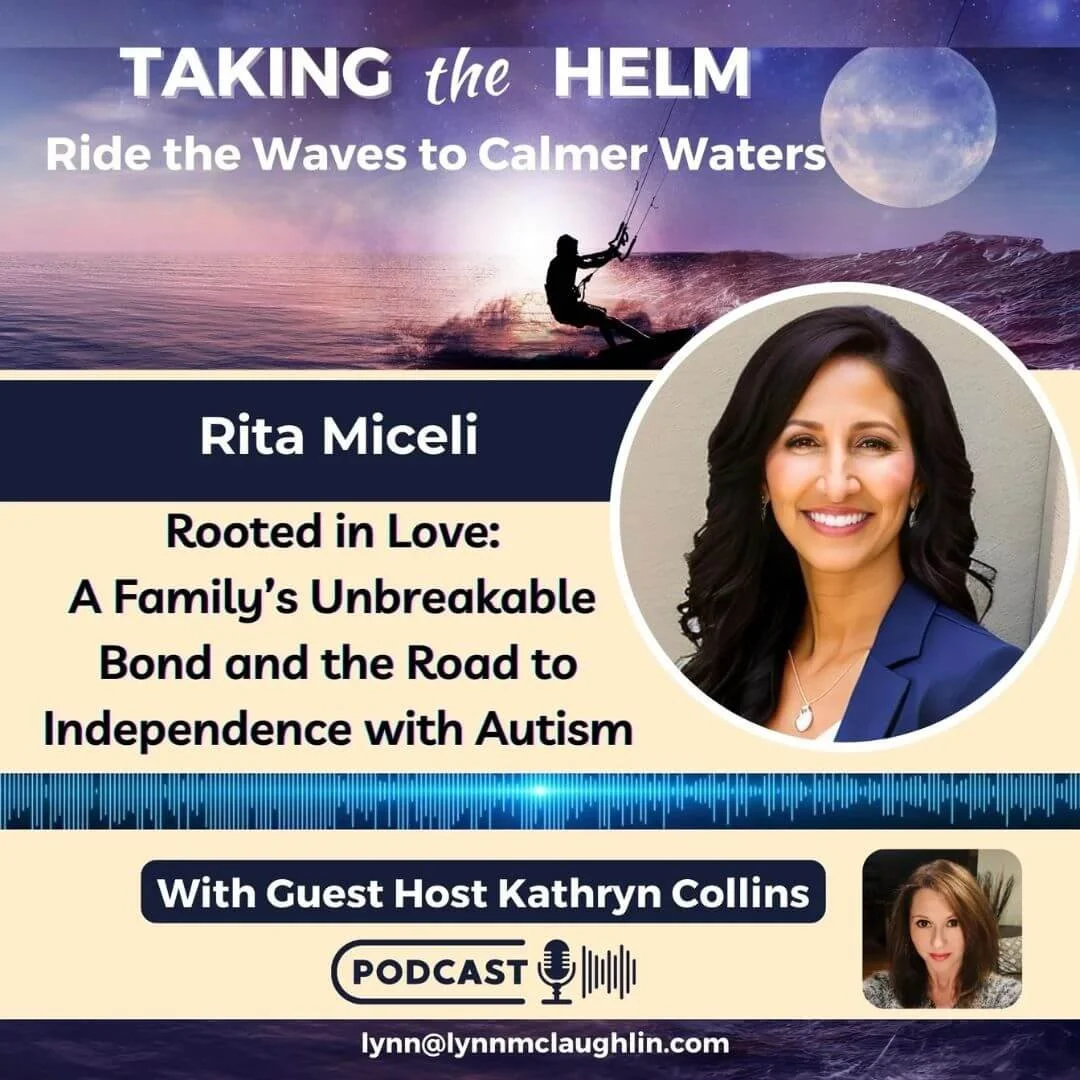
When Rita Miceli received her son Giaci’s autism diagnosis, her world shifted - but it didn’t break. In the second part of this heartfelt conversation on Taking the Helm, Rita shares how her family navigated the uncertainty, fear, generational and cultural beliefs by building an unshakable foundation of love, support, and understanding.
Rita also reflects on sibling connection, self-care, the steps they took to build their son's independence and how she found peace knowing her son will always be supported. It’s a conversation filled with honesty, hope, and the powerful reminder that love can truly light the way.
💥 How do parents cope when they hear the diagnosis?
💥 How do we take care of ourselves and find strength rather than working at it from a point of weakness?
💥 Giaci's siblings adore him. What made this possible and how has he has made them better people?
💥 Giaci did not go to traditional high school. What did he do as an alternative that introduced him to the work world?
💥How did one TikTok post go viral and how does Giaci's social media posts give families a light at the end of the tunnel?
💥 How did his family prepare Giaci for his sister's wedding and the dance he had with her?
Rita Miceli is the author of "GIACI AND ME: A Mother's Journey of Loving and Raising an Autistic Child", see website www.giaciandme.com. She is an experienced Teacher of about thirty years, with a demonstrated history of working in the education management industry. She is a proven advocate for all persons living with Autism and a guest speaker who avidly promotes bringing awareness and educating others about Autism.
Subscribe from your the platform of your choice

Hope in the Hard: Autism, Advocacy and the Lessons Her Son Taught Her
Rita Miceli is the proud mother of three daughters and her autistic son. A TikTok video of her son became viral and sparked a community with over 600,000 followers. It was the catalyst for a platform, a message, and eventually, her book 𝗚𝗶𝗮𝗰𝗶 𝗮𝗻𝗱 𝗠𝗲: 𝐀 𝐌𝐨𝐭𝐡𝐞𝐫’𝐬 𝐉𝐨𝐮𝐫𝐧𝐞𝐲 𝐨𝐟 𝐋𝐨𝐯𝐢𝐧𝐠 𝐚𝐧𝐝 𝐑𝐚𝐢𝐬𝐢𝐧𝐠 𝐚𝐧 𝐀𝐮𝐭𝐢𝐬𝐭𝐢𝐜 𝐂𝐡𝐢𝐥𝐝.
For her manuscript, "Giaci and Me: Life Lessons on Raising an Autistic Child, " the Word Guild awarded her the Best New Canadian Manuscript award. With over three decades of educational experience, Rita teaches in the Autism and Behavioural Science Graduate Program at St. Clair College in Windsor, Ontario.
💥 What were the first indicators that caused concern?
💥 How did Giaci gain independence, and how effective was Applied Behaviour Analysis (ABA) in Giaci's development?
💥 Rita's journey as a mother of four, navigating the early signs, delayed diagnosis, and emotional toll of parenting a child with autism.
💥 Rita opens up about the grieving process parents often go through, mourning the life they imagined for their child and the one they must now build together.
💥 What is the latest research connecting genetics to autism and the groundbreaking work from Toronto Sick Kids Hospital?
💥 What are some early interventions?
Her family's journey has been highlighted in The Drive Magazine, on CTV News, and CBC National News. Rita is the past president of Autism Ontario (Windsor/Essex Chapter) and has published works on multiple platforms related to special needs and autism, including "A Call to Action" (Autism Matters) and "Words that Connect Us" (Canadian Authors Association). Additionally, Rita's short story "Going to the Dance" has been featured on Spillwords Press.

Rita Miceli is the proud mother of three daughters and her autistic son. A TikTok video of her son became viral and sparked a community with over 600,000 followers. It was the catalyst for a platform, a message, and eventually, her book 𝗚𝗶𝗮𝗰𝗶 𝗮𝗻𝗱 𝗠𝗲: 𝐀 𝐌𝐨𝐭𝐡𝐞𝐫’𝐬 𝐉𝐨𝐮𝐫𝐧𝐞𝐲 𝐨𝐟 𝐋𝐨𝐯𝐢𝐧𝐠 𝐚𝐧𝐝 𝐑𝐚𝐢𝐬𝐢𝐧𝐠 𝐚𝐧 𝐀𝐮𝐭𝐢𝐬𝐭𝐢𝐜 𝐂𝐡𝐢𝐥𝐝.
For her manuscript, "Giaci and Me: Life Lessons on Raising an Autistic Child, " the Word Guild awarded her the Best New Canadian Manuscript award. With over three decades of educational experience, Rita teaches in the Autism and Behavioural Science Graduate Program at St. Clair College in Windsor, Ontario.
💥 What were the first indicators that caused concern?
💥 How did Giaci gain independence, and how effective was Applied Behaviour Analysis (ABA) in Giaci's development?
💥 Rita's journey as a mother of four, navigating the early signs, delayed diagnosis, and emotional toll of parenting a child with autism.
💥 Rita opens up about the grieving process parents often go through, mourning the life they imagined for their child and the one they must now build together.
💥 What is the latest research connecting genetics to autism and the groundbreaking work from Toronto Sick Kids Hospital?
💥 What are some early interventions?
Her family's journey has been highlighted in The Drive Magazine, on CTV News, and CBC National News. Rita is the past president of Autism Ontario (Windsor/Essex Chapter) and has published works on multiple platforms related to special needs and autism, including "A Call to Action" (Autism Matters) and "Words that Connect Us" (Canadian Authors Association). Additionally, Rita's short story "Going to the Dance" has been featured on Spillwords Press.
Subscribe from your the platform of your choice

CELEBRATING Our 150th guest! From Classroom to Home | Unlocking Learning for Every Child with Assistive Technology
Assistive technology is more than just a tool—it’s a game-changer for students of all abilities, helping to bridge gaps in learning and create equitable opportunities.
Erin Plumb is a leader in assistive technology with 20+ years of expertise in accessibility, accommodations, and inclusion. Passionate about accessibility, she advocates for equitable education and empowers educators to adopt best practices in assistive technology, shaping a more inclusive future.
Key Points:
💥 What is assistive technology?
💥 Why is it so important globally in this digital world?
💥 Reading, Writing, Math and STEM programs (Text Help Read and Write, Equatio as examples)
💥 What are the pros and cons of using tech in the classroom? How does it support educators, inclusivity and those with special needs?
💥 What programs or apps can we use to access books and resources that are already formatted?
💥 Tips for parents on how to choose and use the right apps/tools.
💥 AI is here to stay. How do we embrace it safely in schools?
💥 What will assistive tech look like in the future and how should we support educators with universal design for learning?

We are celebrating our 150th guest with Erin Plumb!
Assistive technology is more than just a tool—it’s a game-changer for students of all abilities, helping to bridge gaps in learning and create equitable opportunities.
Erin Plumb is a leader in assistive technology with 20+ years of expertise in accessibility, accommodations, and inclusion. Passionate about accessibility, she advocates for equitable education and empowers educators to adopt best practices in assistive technology, shaping a more inclusive future.
Key Points:
💥 What is assistive technology?
💥 Why is it so important globally in this digital world?
💥 Reading, Writing, Math and STEM programs (Text Help Read and Write, Equatio as examples)
💥 What are the pros and cons of using tech in the classroom? How does it support educators, inclusivity and those with special needs?
💥 What programs or apps can we use to access books and resources that are already formatted?
💥 Tips for parents on how to choose and use the right apps/tools.
💥 AI is here to stay. How do we embrace it safely in schools?
💥 What will assistive tech look like in the future and how should we support educators with universal design for learning?
Erin shares a written synopsis and resource links for many organizations that support Assistive Tech worldwide. Click here.
Subscribe from your the platform of your choice
Beyond Boundaries: How Brain-Computer Interfaces Are Transforming Possibilities for Kids
Dr. Christine Daigle is a child and adolescent clinical neuropsychologist and clinical psychologist whose work includes brain-computer interface, translating brain signals into commands to control technology.
She's been doing children's psychology for 17 years, specializing in developmental disabilities, autism, learning challenges, and mental health.
Key points.
💥 Conditions that affect your brain also affect your life.
💥 What is Brain Computer Interface or BCI?
💥 Noninvasive headsets are being researched for children with neuromotor disorders, most of who are nonverbal. Children who have limited motor capabilities learn to use something in their environment.
💥 Imagine a child at home or in school making a character in a video game jump with their thoughts! With a few sessions of 20 minutes of training, students can turn their lights on and off, turn the pages of a virtual book, start and stop a motorized wheelchair, and more.
💥 Research is now being done in classroom environments with tremendous potential for independence, play, socialization, and inclusion.
💥 Anything that can be done with a switch adaptor can be done with a BCI. Communication is beginning to be researched with great potential using headsets.
💥 A current research study is underway. Can the headsets work in classrooms with noise, distraction, and movement? They are working in the current trials.
💥 What are the challenges?

Dr. Christine Daigle is a child and adolescent clinical neuropsychologist and clinical psychologist whose work includes brain-computer interface, translating brain signals into commands to control technology.
She's been doing children's psychology for 17 years, specializing in developmental disabilities, autism, learning challenges, and mental health.
Key points.
💥 Conditions that affect your brain also affect your life.
💥 What is Brain Computer Interface or BCI?
💥 Noninvasive headsets are being researched for children with neuromotor disorders, most of who are nonverbal. Children who have limited motor capabilities learn to use something in their environment.
💥 Imagine a child at home or in school making a character in a video game jump with their thoughts! With a few sessions of 20 minutes of training, students can turn their lights on and off, turn the pages of a virtual book, start and stop a motorized wheelchair, and more.
💥 Research is now being done in classroom environments with tremendous potential for independence, play, socialization, and inclusion.
💥 Anything that can be done with a switch adaptor can be done with a BCI. Communication is beginning to be researched with great potential using headsets.
💥 A current research study is underway. Can the headsets work in classrooms with noise, distraction, and movement? They are working in the current trials.
💥 What are the challenges?
Subscribe from your the platform of your choice
Heart Matters: Transforming Education From the Inside Out
Lindsey Frank, M.Ed., CEO of The Butterfly Within and President of the Coalition of Schools Educating Mindfully (COSEM), joins us to explore how cultivating presence through heart-centered practices can transform schools and communities. With over 13 years of experience as an educator and now a global changemaker, Lindsey shares her courageous journey of stepping out of the classroom to embrace a broader mission of empowering others to unlock their “butterfly within.”
We dive into:
💥 Why presence is essential in our rapidly evolving, often disconnected world.
💥 The HEART strategy—a powerful tool to unlock presence and foster emotional regulation.
💥 The importance of mindfulness-based social and emotional learning (SEL) as a way of being, not just something to do.
💥 How COSEM is creating an evolving educational ecosystem that starts with adults and ripples into school communities.
Lindsey also leads a guided mindfulness practice to help you assess and deepen your own level of presence. Whether you’re an educator, parent, or leader, this episode will leave you inspired to create courageous, calm, and connected communities through heart-centered mindfulness.

Lindsey Frank, M.Ed., CEO of The Butterfly Within and President of the Coalition of Schools Educating Mindfully (COSEM), joins us to explore how cultivating presence through heart-centered practices can transform schools and communities. With over 13 years of experience as an educator and now a global changemaker, Lindsey shares her courageous journey of stepping out of the classroom to embrace a broader mission of empowering others to unlock their “butterfly within.”
We dive into:
💥 Why presence is essential in our rapidly evolving, often disconnected world.
💥 The HEART strategy—a powerful tool to unlock presence and foster emotional regulation.
💥 The importance of mindfulness-based social and emotional learning (SEL) as a way of being, not just something to do.
💥 How COSEM is creating an evolving educational ecosystem that starts with adults and ripples into school communities.
Lindsey also leads a guided mindfulness practice to help you assess and deepen your own level of presence. Whether you’re an educator, parent, or leader, this episode will leave you inspired to create courageous, calm, and connected communities through heart-centered mindfulness.
Subscribe from your the platform of your choice
Building a Mindful Generation: From the Classroom to the Family Room
Guest Host Kathryn Collins continues the conversation with Jackie Savi-Cannon.
How do we help children build resilience and emotional literacy through mindfulness, yoga, and meditation? These practices can empower the next generation to cope better with life’s challenges. How can shifting our focus to states of peace and well-being can transform classrooms and families alike?
Learn how programs like Generation 1 Kids are equipping teachers, parents, and students with strategies to recognize and nurture emotional health, creating lasting habits that benefit both physical and mental well-being.
Highlights:
💥 Tools and techniques that integrate seamlessly into the school day through the Generation 1 program (from click-and-play video lessons to cross-subject applications, with training and support.
💥 How focusing on the three Cs of compassion, creativity, and collaboration changes classrooms.
💥 The science behind mindfulness and its instant results.
💥 Why relaxation is a state of being—not just an activity.
💥 How the "I" in team can be rebooted through emotional literacy.
💥 Real-world examples of integrating emotional well-being into classrooms and homes.
💥 Practical tips for creating a mindful family culture and fostering emotional awareness.
With Guest Host Kathryn Collins

Guest Host Kathryn Collins continues the conversation with Jackie Savi-Cannon. For the past 15 years, Kathryn held the pivotal role of Educational Coordinator, coordinating special education services and collaborating with community agencies to provide comprehensive support for students from kindergarten through grade 12.
How do we help children build resilience and emotional literacy through mindfulness, yoga, and meditation? These practices can empower the next generation to cope better with life’s challenges. How can shifting our focus to states of peace and well-being can transform classrooms and families alike?
We’ll dive into tools and techniques that integrate seamlessly into the school day, from click-and-play video lessons to cross-subject applications, making it easier for teachers and counselors to bring compassion, creativity, and collaboration into their classrooms.
Learn how programs like Generation 1 Kids are equipping teachers, parents, and students with strategies to recognize and nurture emotional health, creating lasting habits that benefit both physical and mental well-being.
Highlights:
💥 Tools and techniques that integrate seamlessly into the school day through the Generation 1 program (from click-and-play video lessons to cross-subject applications, with training and support.
💥 How focusing on the three Cs of compassion, creativity, and collaboration changes classrooms.
💥 The science behind mindfulness and its instant results.
💥 Why relaxation is a state of being—not just an activity.
💥 How the "I" in team can be rebooted through emotional literacy.
💥 Real-world examples of integrating emotional well-being into classrooms and homes.
💥 Practical tips for creating a mindful family culture and fostering emotional awareness.
Subscribe from your the platform of your choice







